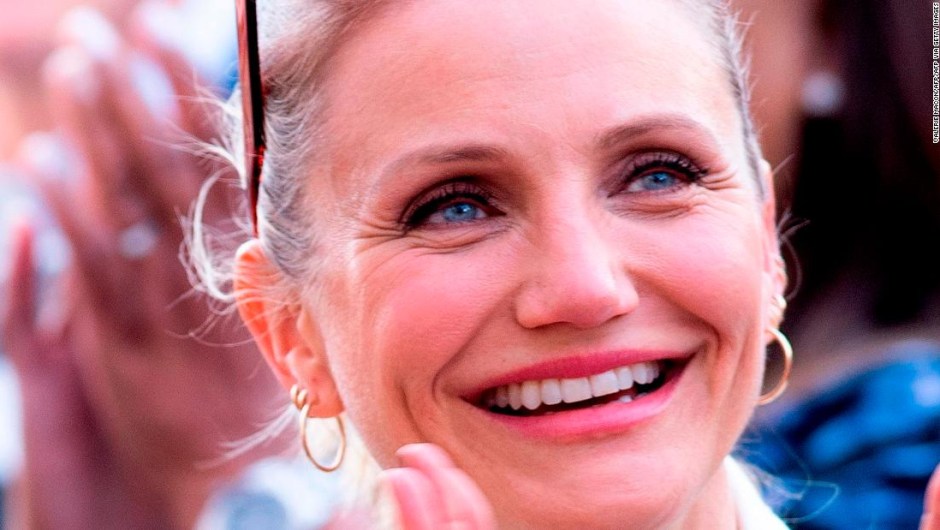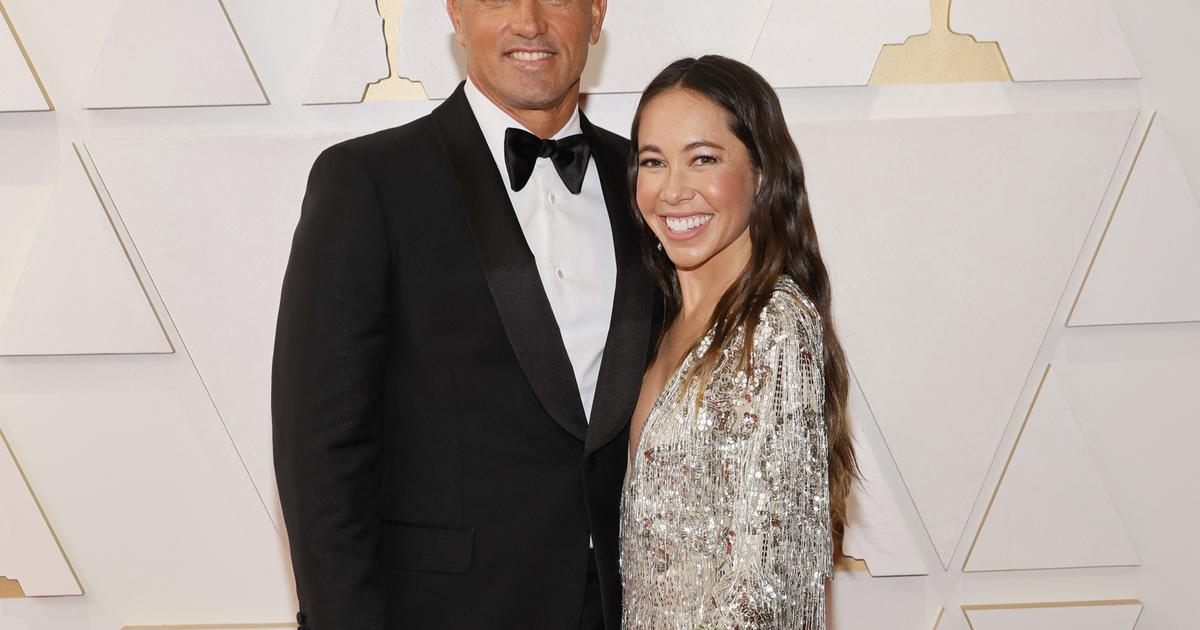Editor's Note: Peggy Drexler is a research psychologist and author of "Our Fathers, Ourselves: Daughters, Fathers, and the Changing American Family" and "Raising Boys Without Men." Work on a book about how women are conditioned to compete with each other. The opinions expressed in this comment are yours. See more opinion on CNN.
(CNN) - In a recent interview with Gwyneth Paltrow, actress Cameron Diaz spoke about her decision to stop acting, offering reasons that focused on improving her quality of life. "I've been trying so hard for so long," he told Paltrow on an episode of "In goop Health: The Sessions," and mentioned 12-hour workdays that lasted for months.
"I didn't really make any space for my personal life." She said she has now "found peace" and added that "I'm finally taking care of myself."
In recent years, Diaz has focused her attention on writing (she is the author of 2 books) and creating a wine business. She married in 2015 and, earlier this year, became a new mother, at age 47, to her daughter Raddix. Presumably, her more than 20 years of success in the movie business prepared her financially to make that change: doing, in middle age, what she wants to do rather than what she feels she has to do.
Her story is refracted in that of fellow actress Ellen Pompeo, 50, who, also this week, revealed that she chose to stay on the popular television show "Grey's Anatomy" for 15 years rather than seek "more creative" roles. even when other cast members left, and for the most pragmatic of reasons: the money and the stability it conferred.
- MORE: Cameron Diaz Reveals Why He Stopped Acting
She explained this in an interview on the "Jemele Hill Is Unbothered" podcast. "The idea of having this great husband and these 3 beautiful children and a happy home life was something that I really needed to complete, to close the hole in my heart," Pompeo said, referring to an unhappy childhood. There was also a late start, she said (she was 33 when she took on the role of Gray, 40 when she started having children) "so I made the decision to earn money": to be a working mother and, as she put it, "financially stable" .
The way these two women's stories made it to the press provides an interesting opportunity to pause and reflect on where our society stands when it comes to our expectations of women.
Diaz's decision to leave her career behind and become a mother at age 47 met with a largely gracious reception, applause even from some, for a popular movie star who left a life-taking (albeit lucrative) job. to have a home and a family.
But several articles on Pompeo's choice of motherhood and the 17 seasons she spent at the same job led to her desire for a reliable paycheck, and even rated a sarcastic headline on Vulture: "Cash Rules Everything About Ellen Pompeo staying on Grey's Anatomy «.
The idea that home should triumph over career is a philosophy shared by many women (and men), including the 27% of American moms who, according to the Pew Research Center, stay home to care for their children. Different options, like Pompeo's, while completely identifiable and necessary for many women, can still generate strange disapproval.
Devon Ivie, writing in New York Magazine's Vulture, for example, focused on Pompeo's revelation with no small derision, noting the "monthly deposits" that "impacted his bank account" and his "exorbitant salary." That article also mentions that Pompeo has had to defend his salary in the past.
Damn if he does, damn if he doesn't… right? If you are a woman, the answer is often yes.
Why are we so concerned with the decisions other women make and why do they make them? Or how much do they get paid to make them or not? (And when, for that matter, would any of us raise an eyebrow at a man who stayed at a job to earn a lot of money, for whatever reason?)
That we should pause such questions in pop culture and throughout society reflects both the enduring hold of a patriarchy that has long established the boundaries of acceptable female behavior and ambition, and the unfortunate acceptance of many women to those same restrictions.
In fact, all too often women look at each other with suspicion (something I'm exploring with fellow research psychologist Tracy Vaillancourt for a book on indirect female aggression). In both Pompeo's and Diaz's cases, these are women who have made decisions that worked for them at specific times in their lives, and then when they no longer worked, and when each could afford to stop drinking. the same decisions, they made different ones.
To work or not to work while parenting is a very personal decision faced by many women and often the two factors are pitted against each other, as if the same woman could not want both: start a family and earn money. And yet both Pompeo and Diaz seem to have felt compelled to provide a great rationale for their decisions, which have received what is probably an overabundance of media attention, given the amount of "real" news out there. days.
But guess what? Like men, women are not all the same. That notion can be difficult for many people to remember. Instead, too often we tend to treat women (especially mothers) as if all should be governed by the same motivations and responses. And then if they do something unexpected, something they just want to do, we question them or even condemn them for it.
With men, we tend to view the decisions they make as necessary, if we even bother to comment on them. Does a man work 80 hours a week? It is for your family. It stops? It is also for your family. And all good.
However, a woman, once again, especially a mother, who works more than we think she "should" is often seen, even today and even if she needs it, as neglecting her family or prioritizing herself or the child. money above everything else. She may even struggle not to see herself that way.
It's an interesting contrast, isn't it?
In truth, most women will relate to Diaz and Pompeo's decisions: they want to have control over their lives and live better, and especially in middle age, when the opportunities for women, and especially women in Hollywood, are minors.
Diaz backtracks to finally get what he wants out of life; Pompeo leans for the same reason.
When we question those decisions, it is usually because we are conditioned. What if, instead, we considered them, free of our expectations, for what they are: the choice of each individual woman? How different would life be if we supported other women, rather than questioning them, unconditionally?
Cameron Diaz













